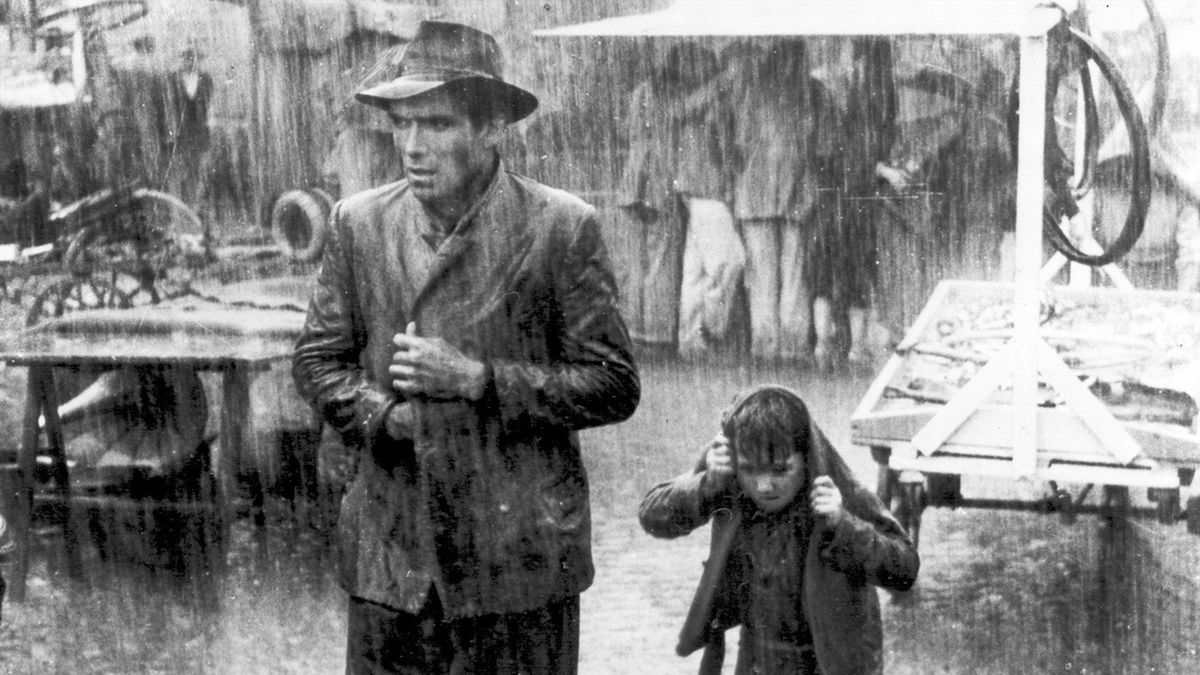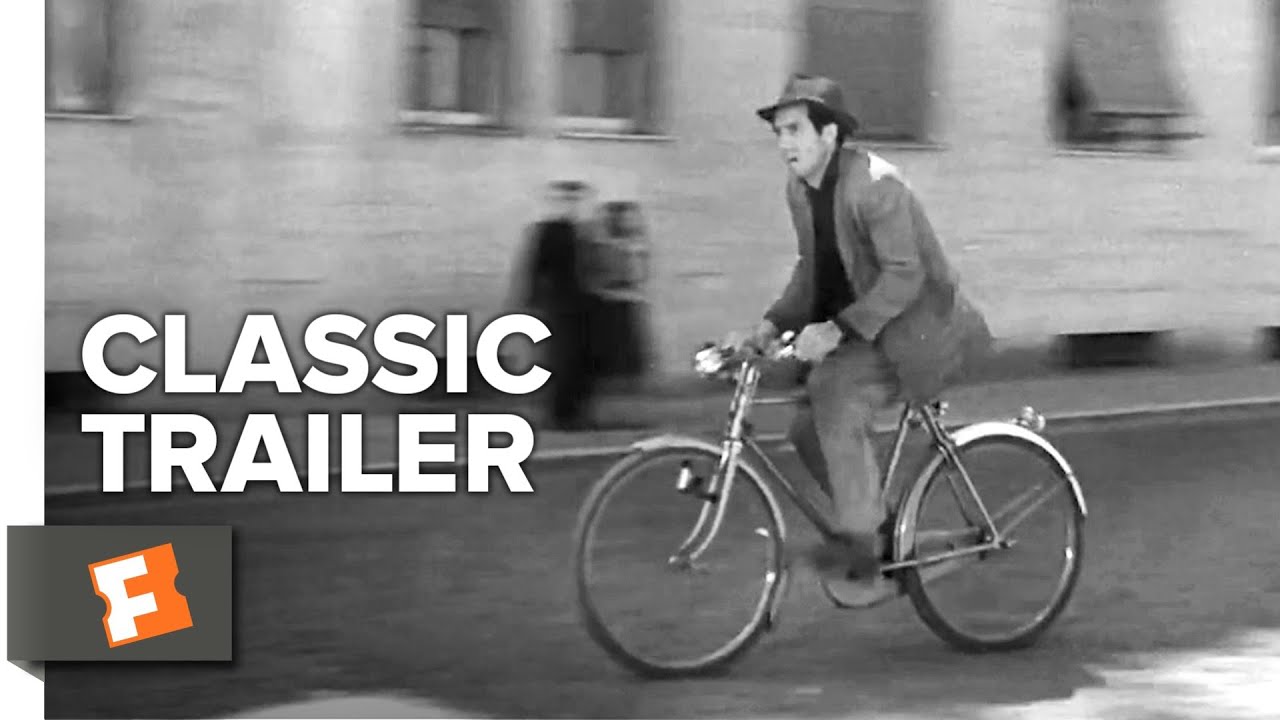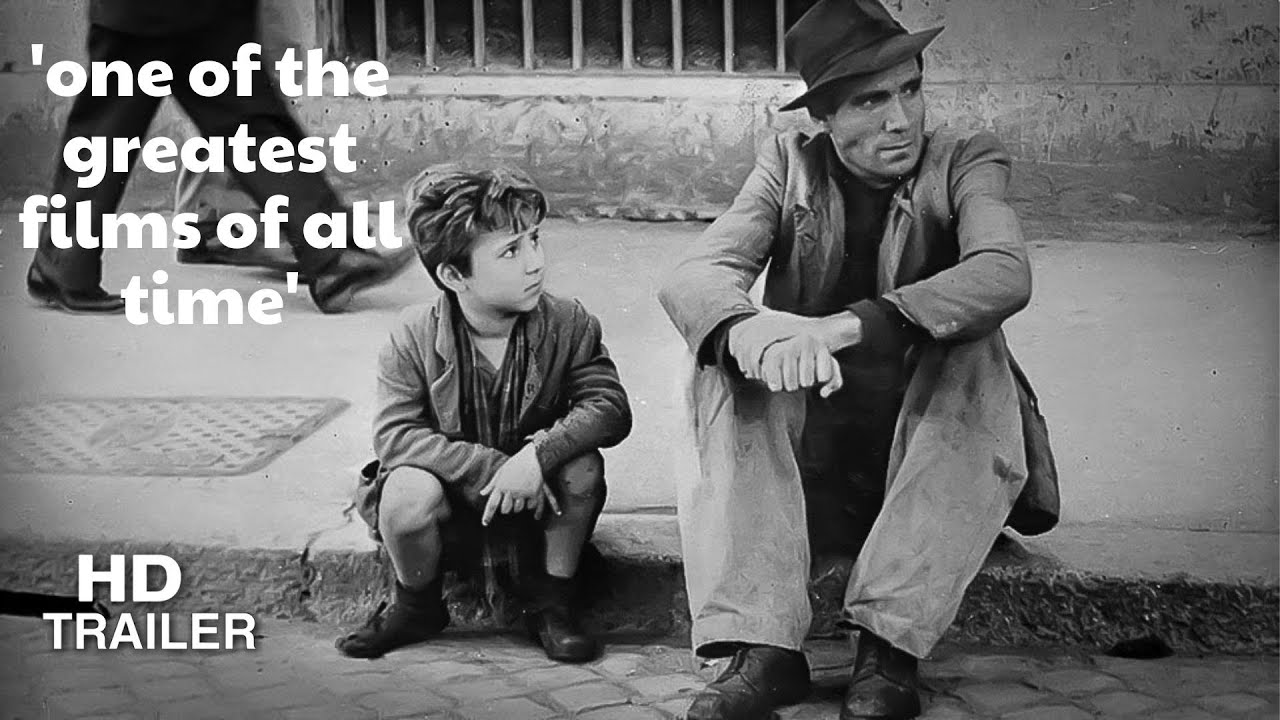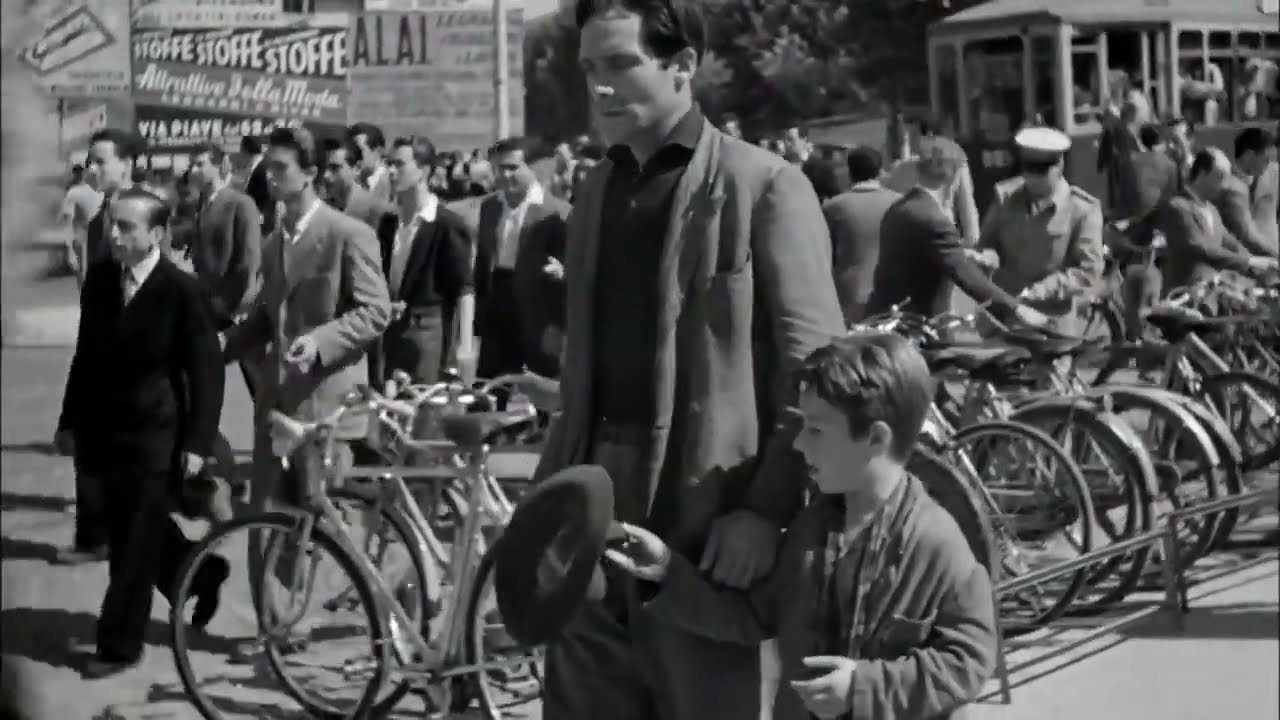🎬 Bicycle Thieves (1948): A Masterpiece of Neorealism That Speaks to the Human Condition

Bicycle Thieves (1948), directed by Vittorio De Sica, stands as one of the most iconic films in the history of cinema. This post-World War II Italian neorealist classic is a profound exploration of poverty, desperation, and the lengths to which people will go in their pursuit of dignity. Known for its emotional depth, authenticity, and simplicity, Bicycle Thieves continues to resonate with audiences across the world. But what makes this film such an enduring masterpiece?
Plot Overview:
Set in Rome, Bicycle Thieves follows Antonio Ricci (Lamberto Maggiorani), an unemployed man who, after a long period of joblessness, finally secures a position hanging posters around the city. However, the job requires a bicycle, and Antonio’s is pawned to provide for his family. His wife, Maria (Lianella Carell), sells the family’s bedsheets so that they can reclaim the bicycle, giving Antonio a chance to work and provide for their young son, Bruno (Enzo Staiola).
Tragically, on his first day of work, Antonio’s bicycle is stolen. The remainder of the film chronicles Antonio’s desperate search for the stolen bicycle across the streets of Rome, accompanied by his son, Bruno. Antonio’s journey takes him through the city’s impoverished neighborhoods, its black markets, and even a brief encounter with the police, all in the hope of recovering the bicycle that symbolizes his family’s survival.
The film’s climax forces Antonio to make a heartbreaking decision, one that reveals the cyclical nature of poverty and the loss of moral values in the face of desperation.

Character Development and Themes:
One of the most remarkable aspects of Bicycle Thieves is its use of non-professional actors, a hallmark of the neorealist movement. Lamberto Maggiorani, in the role of Antonio, delivers a raw and powerful performance that captures the quiet dignity and growing despair of a man trying to protect his family in a world indifferent to his suffering. Maggiorani’s portrayal is subtle but profoundly moving, as we see Antonio’s gradual descent into hopelessness and moral conflict.
Enzo Staiola as Bruno provides the emotional core of the film. As Antonio’s son, Bruno serves as both a symbol of innocence and a reflection of the harsh realities of life. The relationship between Antonio and Bruno is one of the film’s central pillars, with De Sica using their bond to heighten the emotional stakes. Bruno’s silent witnessing of his father’s struggles is deeply affecting, and his loyalty and love for his father create some of the film’s most poignant moments.
The film’s exploration of poverty and class is central to its narrative. Bicycle Thieves presents a society ravaged by economic hardship, where survival often means compromising one’s moral integrity. The bicycle represents more than just a means of transportation—it is a symbol of hope, stability, and the possibility of escaping poverty. The loss of the bicycle plunges Antonio into a spiral of despair, forcing him to confront the brutal reality of a system stacked against him.
Another key theme is the moral ambiguity that arises from desperation. Throughout the film, Antonio is faced with difficult choices, and his growing sense of helplessness forces him to consider actions he once would have condemned. The film’s title itself, Bicycle Thieves, suggests the blurring of lines between victim and perpetrator, reflecting the cyclical nature of poverty.

Realism and Cinematic Style:
De Sica’s decision to shoot on location in the streets of Rome, using natural light and non-professional actors, lends Bicycle Thieves an authenticity that heightens its emotional impact. The film’s visual style, with its long takes and carefully composed shots, captures the beauty and desolation of post-war Rome, making the city itself a character in the story.
The film’s neorealist approach emphasizes the mundane, the everyday struggles of ordinary people, and the ways in which small, seemingly insignificant events can have devastating consequences. De Sica avoids melodrama, opting instead for a quiet, observational style that allows the emotional weight of the story to emerge naturally from the characters’ experiences.
The use of non-professional actors adds to the film’s realism. Maggiorani, a factory worker in real life, brings a naturalism to the role of Antonio that professional actors may not have been able to capture. His performance is understated yet deeply moving, embodying the silent suffering of a man who has lost his dignity. Similarly, young Enzo Staiola as Bruno gives a heartbreakingly honest performance, with his wide-eyed innocence contrasting with the harshness of the world around him.

Criticism:
While Bicycle Thieves is universally regarded as a masterpiece, some critics may argue that its stark realism and slow pacing may not appeal to all viewers, particularly those more accustomed to fast-paced or plot-driven films. The film’s minimalist style and lack of conventional dramatic tension may be seen by some as overly simple or uneventful.
Additionally, the film’s unrelentingly bleak tone and tragic ending, though emotionally powerful, may leave some viewers feeling despondent. However, it is precisely this unflinching portrayal of life’s hardships that gives the film its lasting power and emotional depth.
Final Thoughts:
Bicycle Thieves is a timeless masterpiece that captures the essence of human suffering, dignity, and resilience. Its simple yet profound story of a man’s desperate search for his stolen bicycle serves as a powerful metaphor for the struggles of the working class in post-war Italy. Through its authentic performances, neorealist style, and exploration of universal themes, the film continues to resonate with audiences around the world.

De Sica’s film is not just about the theft of a bicycle—it’s about the theft of hope, dignity, and the moral compromises that arise in times of desperation. For those who appreciate films that offer a window into the human condition, Bicycle Thieves remains an essential and unforgettable viewing experience.
Movie Information:
- Title: Bicycle Thieves (Ladri di biciclette)
- Director: Vittorio De Sica
- Starring: Lamberto Maggiorani, Enzo Staiola, Lianella Carell
- Genre: Drama, Neorealism
- Release Date: November 24, 1948
- Running Time: 89 minutes
- Rating: Not Rated
- Plot Summary: In post-war Rome, a man’s only source of income, his bicycle, is stolen on the first day of his new job. Desperate to provide for his family, he embarks on a journey with his young son to recover the stolen bicycle, encountering the harsh realities of life in a world marked by poverty and desperation.
SUGGESTED VIDEO FOR YOU:
[Movie Review] The Great War of the Norse Gods || Thor 2011
[Movie Review] The Legend of a Hero Specializing in Hunting the Most Terrible Monsters in Greece











